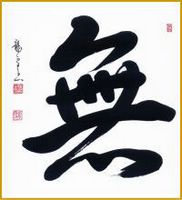last scene (on an airplane during take-off) from "Say Anything" (1989) (Diane is afraid of flying)
LLOYD: "Alright,high-level airline safety tips. If anything happens it usually happens in the first 5 minutes of the flight, right."
DIANE: "Okay."
LLOYD: "So when you hear that smoking sign go ding you know everything's going to be okay."
DIANE: "Good to know."
LLOYD: "Alright, I'm just going to keep talking until that ding happens, which is going to be soon."
DIANE: "Okay."
Recycled Air - Benjamin Gibbard/The Postal Service
i take a breath and pull the air in 'til there's nothing left
I'm feeling green like teenage lovers between the sheets
ba ba ba ba...
knuckles clenched to white as the landing
gear retract for flight
my head's a balloon inflating with the altitude
ba ba ba ba...
i watch the patchwork farms' slow fade into the ocean's arms
and from here they can't see me stare
the stale taste of recycled air
i watch the patchwork farms' slow fade into the ocean's arms
calm down, release your cares
the stale taste of recycled air
Wednesday, August 31, 2005
Tuesday, August 30, 2005
Scotland by Robert Crawford
Glebe of water, country of thighs and watermelons
In seeded red slices, bitten by a firthline edged
With colonies of skypointing gannets,
You run like fresh paint under August rain.
It is you I return to, mouth of erotic Carnoustie,
Edinburgh in helio. I pass like an insect
Among shoots of ferns, gloved with pollen, intent
On listing your meadows, your pastoral Ayrshires, your glens
Gridded with light. A whey of meeting
Showers itself through us, sluiced from defensive umbrellas.
Running its way down raincoat linings, it beads
Soft skin beneath. A downpour takes us
At the height of summer, and when it is finished
Bell heather shines to the roots,
Belly-clouds cover the bings and slate cliffs,
Intimate grasses blur with August rain.
Glebe of water, country of thighs and watermelons
In seeded red slices, bitten by a firthline edged
With colonies of skypointing gannets,
You run like fresh paint under August rain.
It is you I return to, mouth of erotic Carnoustie,
Edinburgh in helio. I pass like an insect
Among shoots of ferns, gloved with pollen, intent
On listing your meadows, your pastoral Ayrshires, your glens
Gridded with light. A whey of meeting
Showers itself through us, sluiced from defensive umbrellas.
Running its way down raincoat linings, it beads
Soft skin beneath. A downpour takes us
At the height of summer, and when it is finished
Bell heather shines to the roots,
Belly-clouds cover the bings and slate cliffs,
Intimate grasses blur with August rain.
Whisky Soft as a Candle's Flame by Hugh MacDiarmid
Do you remember the orchard at Avrânches,
And the wine we drank in the sunshine?
- It was surely sunshine itself we drank
That day, and not just wine.
But now I am growing old and am glad to know
Here in Scotland we've still many a quiet town
Where the whisky is as soft as a candle's flame
And only slightly warmer going down.
Do you remember the orchard at Avrânches,
And the wine we drank in the sunshine?
- It was surely sunshine itself we drank
That day, and not just wine.
But now I am growing old and am glad to know
Here in Scotland we've still many a quiet town
Where the whisky is as soft as a candle's flame
And only slightly warmer going down.
Sunday, August 28, 2005
A Book of Verse
A book of verse, underneath the bough,
A jug of wine, a loaf of bread - and thou
Beside me singing in the wilderness -
Ah, wilderness were paradise now!
- Omar Khayyam
A jug of wine, a loaf of bread - and thou
Beside me singing in the wilderness -
Ah, wilderness were paradise now!
- Omar Khayyam
Friday, August 26, 2005
Thursday, August 25, 2005
worlds where music is the world
My Love Reveals Objects
my love reveals objects
silken butterflies
concealed in his fingers
his words
splash me with stars
night shines like lightning
under the fingers of my love
my love invents worlds where
jeweled glittering serpents live
worlds where music is the world
worlds where houses with open eyes
contemplate the dawn
my love is a mad sunflower that forgets
fragments of sun in the silence
-- Isabel Fraire
Psalm 183
Pardon me if I seem to cop an attitude
But the attitude is one of worship
And is, I think, sincere.
My heart swells
against the prison of my ribs
And grows to keep my lungs from seeking air.
Still the breath is not pushed out
By such a simple force as pride
But by the glory of my dreaming
That I might, perhaps, be loved
By you.
Pardon me if I'm moved to endless chatter
But I fear that the beauty of the silence,
As I watch your distant eyes
Caress the words I have arranged
As atonement, on the page, as sacrifice,
Might cause my soul to rise
Above this flesh
And leave inert these hands
With which I spell these prayers
Against your thighs.
Pardon me;
I burden you with too much honour.
I know you are no goddess,
Simply human,
Still alive.
The others who I prayed would love me
Ran,
Or else I was the one to run.
And yet their cracked reflections
Howl to me from pools of molten glass
Within my hidden pantheon.
I know you've missed perfection,
But your quirks and flaws
Are not personal betrayals,
But are the marks left
By the kiss of angels,
Allowing you to live within
This far too real world.
Pardon me if these songs of praise defile you
But I'll try to keep my hosannahs
To a quiet whisper,
And try, as I stroke your face,
Not to inscribe the Holy Name upon your brow,
Not to believe that you are both
Creator and Creation
And that you, therefore,
Must obey my will.
For as I rest
My head upon your shoulder
My lips against your throat,
I read your pulse as the rhythm
Of the rushing of the waves,
Your breaths as the passage
Of clouds against a bright and empty sky,
The gentle motion of your breasts
As the soft processional of continents,
As, within this dark and silent world,
We define
A temporary world of our own.
-- Joseph Zitt
my love reveals objects
silken butterflies
concealed in his fingers
his words
splash me with stars
night shines like lightning
under the fingers of my love
my love invents worlds where
jeweled glittering serpents live
worlds where music is the world
worlds where houses with open eyes
contemplate the dawn
my love is a mad sunflower that forgets
fragments of sun in the silence
-- Isabel Fraire
Psalm 183
Pardon me if I seem to cop an attitude
But the attitude is one of worship
And is, I think, sincere.
My heart swells
against the prison of my ribs
And grows to keep my lungs from seeking air.
Still the breath is not pushed out
By such a simple force as pride
But by the glory of my dreaming
That I might, perhaps, be loved
By you.
Pardon me if I'm moved to endless chatter
But I fear that the beauty of the silence,
As I watch your distant eyes
Caress the words I have arranged
As atonement, on the page, as sacrifice,
Might cause my soul to rise
Above this flesh
And leave inert these hands
With which I spell these prayers
Against your thighs.
Pardon me;
I burden you with too much honour.
I know you are no goddess,
Simply human,
Still alive.
The others who I prayed would love me
Ran,
Or else I was the one to run.
And yet their cracked reflections
Howl to me from pools of molten glass
Within my hidden pantheon.
I know you've missed perfection,
But your quirks and flaws
Are not personal betrayals,
But are the marks left
By the kiss of angels,
Allowing you to live within
This far too real world.
Pardon me if these songs of praise defile you
But I'll try to keep my hosannahs
To a quiet whisper,
And try, as I stroke your face,
Not to inscribe the Holy Name upon your brow,
Not to believe that you are both
Creator and Creation
And that you, therefore,
Must obey my will.
For as I rest
My head upon your shoulder
My lips against your throat,
I read your pulse as the rhythm
Of the rushing of the waves,
Your breaths as the passage
Of clouds against a bright and empty sky,
The gentle motion of your breasts
As the soft processional of continents,
As, within this dark and silent world,
We define
A temporary world of our own.
-- Joseph Zitt
My daily activities are not unusual,
I'm just naturally in harmony with them.
Grasping nothing, discarding nothing...
Supernatural power and marvelous activity -
Drawing water and carrying firewood.
- Layman Pang-yun (740-808)
Everything
just as it is,
as it is,
as is.
Flowers in bloom.
Nothing to add.
- Robert Aitken, Roshi, As it Is
Fathomed at last!
Ocean's dried. Void burst.
Without an obstacle in sight,
It's everywhere!
- Joho, 12th Century
Zen Poems of China and Japan, 1973, p. 15
Translated by Lucien Stryk, Takashi Ikemoto and Taigan Takayama
Two come about because of One,
but don't cling to the One either!
So long as the mind does not stir,
the ten thousand things stay blameless;
no blame, no phenomena,
no stirring, no mind.
The viewer disappears along with the scene,
the scene follows the viewer into oblivion,
for scene becomes scene only through the viewer,
viewer becomes viewer because of the scene.
- Seng-ts'an, 600
Hsin-Hsin-Ming: Inscription on Trust in the Mind
Translated by Burton Watson
Found in Entering the Stream, p. 149
Edited by Samuel Bercholz and Sherab Chodzin Kohn
Zen Poems, Verses, Quotes, Quips, Koans - #1.����� .
I'm just naturally in harmony with them.
Grasping nothing, discarding nothing...
Supernatural power and marvelous activity -
Drawing water and carrying firewood.
- Layman Pang-yun (740-808)
Everything
just as it is,
as it is,
as is.
Flowers in bloom.
Nothing to add.
- Robert Aitken, Roshi, As it Is
Fathomed at last!
Ocean's dried. Void burst.
Without an obstacle in sight,
It's everywhere!
- Joho, 12th Century
Zen Poems of China and Japan, 1973, p. 15
Translated by Lucien Stryk, Takashi Ikemoto and Taigan Takayama
Two come about because of One,
but don't cling to the One either!
So long as the mind does not stir,
the ten thousand things stay blameless;
no blame, no phenomena,
no stirring, no mind.
The viewer disappears along with the scene,
the scene follows the viewer into oblivion,
for scene becomes scene only through the viewer,
viewer becomes viewer because of the scene.
- Seng-ts'an, 600
Hsin-Hsin-Ming: Inscription on Trust in the Mind
Translated by Burton Watson
Found in Entering the Stream, p. 149
Edited by Samuel Bercholz and Sherab Chodzin Kohn
Zen Poems, Verses, Quotes, Quips, Koans - #1.����� .
Celtic Knot

Aon Celtic Art:
Knotwork Interlace - the interconnection of life and humankind's place within the universe.
 Common knots include the Trinity knot, thought to represent the Holy Trinity or the Triple Gods/Goddesses of the ancient Celts; and the Lover's Knot, representing 2 together as one (resembles intertwined infinity symbols).
Common knots include the Trinity knot, thought to represent the Holy Trinity or the Triple Gods/Goddesses of the ancient Celts; and the Lover's Knot, representing 2 together as one (resembles intertwined infinity symbols). 
the endless knot
 The Endless Knot (Skt. shrivatsa; Tib. dpal be'u):
The Endless Knot (Skt. shrivatsa; Tib. dpal be'u):The endless knot is a closed, graphic ornament composed of right-angled, intertwined lines. It is conjectured that it may have evolved from an ancient naga symbol with two stylized snakes.
This latter image signifies the dramatic interplay and interaction of the opposing forces in the dualistic world of manifestation, leading to their union, and ultimately to harmony in the universe. This fact is amply reflected in the symmetrical and regular form of the endless knot.

The intertwining of lines reminds us how all phenomena are conjoined and yoked together as a closed cycle of cause and effect. Thus the whole composition is a pattern that is closed on in itself with no gaps, leading to a representational form of great simplicity and fully balanced harmony.

Since all phenomena are interrelated, the placing of the endless knot on a gift or greeting card is understood to establish an auspicious connection between the giver and the recipient. At the same time, the recipient is goaded to righteous karma, being reminded that future positive effects have their roots in the causes of the present.

This is because the knot represents a connection, a link with our fates, binding us to our karmic destiny. Not surprisingly, this is one of the most favorite symbols in Tibetan Buddhism, and often occurs independently on its own.

Since the knot has no beginning or end it also symbolizes the infinite wisdom of the Buddha.
The Endless Knot
Wednesday, August 24, 2005
.
Things are not what they seem;
Nor are they otherwise.
- Lankavatara Sutra
Zen does not confuse spirituality with thinking about God
while one is peeling the potatoes. Zen spirituality is just to peel the potatoes
- Allan Watts
Rest in natural great peace this exhausted mind,
Beaten helpless by karma and neurotic thoughts
Like the relentless fury of the pounding waves
In the infinite ocean of samsara.
Rest in natural great peace.
- Nyoshul Khen Rinpoche
The mind is very difficult to see,
Very delicate and subtle;
It moves and lands wherever it pleases.
The wise one should guard his mind,
For a guarded mind brings happiness.
Dhammapada
Translated by Daw Mya Tin
A life-time is not what's between,
The moments of birth and death.
A life-time is one moment,
Between my two little breaths.
The present, the here, the now,
That's all the life I get,
I live each moment in full,
In kindness, in peace, without regret.
- Chade Meng, One Moment
Long seeking it through others,
I was far from reaching it.
Now I go by myself;
I meet it everywhere.
It is just I myself,
And I am not itself.
Understanding this way,
I can be as I am.
- Tung-Shan (806-869)
Only insentient beings hear the sermon of insentient beings;
Walls and fences cannot instruct the grasses and trees to
actualize spring,
Yet they reveal the spiritual without intention, just by being
what they are,
So too with mountains, rivers, sun, moon, and stars.
- Dogen
Taoist Poetry, Zen Verse, Chan Poems, Quotes, Poetry, Sayings, Quips, Koans - #8.�� .
Nor are they otherwise.
- Lankavatara Sutra
Zen does not confuse spirituality with thinking about God
while one is peeling the potatoes. Zen spirituality is just to peel the potatoes
- Allan Watts
Rest in natural great peace this exhausted mind,
Beaten helpless by karma and neurotic thoughts
Like the relentless fury of the pounding waves
In the infinite ocean of samsara.
Rest in natural great peace.
- Nyoshul Khen Rinpoche
The mind is very difficult to see,
Very delicate and subtle;
It moves and lands wherever it pleases.
The wise one should guard his mind,
For a guarded mind brings happiness.
Dhammapada
Translated by Daw Mya Tin
A life-time is not what's between,
The moments of birth and death.
A life-time is one moment,
Between my two little breaths.
The present, the here, the now,
That's all the life I get,
I live each moment in full,
In kindness, in peace, without regret.
- Chade Meng, One Moment
Long seeking it through others,
I was far from reaching it.
Now I go by myself;
I meet it everywhere.
It is just I myself,
And I am not itself.
Understanding this way,
I can be as I am.
- Tung-Shan (806-869)
Only insentient beings hear the sermon of insentient beings;
Walls and fences cannot instruct the grasses and trees to
actualize spring,
Yet they reveal the spiritual without intention, just by being
what they are,
So too with mountains, rivers, sun, moon, and stars.
- Dogen
Taoist Poetry, Zen Verse, Chan Poems, Quotes, Poetry, Sayings, Quips, Koans - #8.�� .
Many years ago — many, many years ago — I was giving a public talk in Argentina, and there was a large window, and there was a butterfly there, hitting the glass, and there was a hole in one of the panes of glass. And as we were talking about practice, I took that thing that was happening for the talk, and said, “This butterfly is hitting the glass, once and again; and there is a hole through which she can go into the open, into the light. No-one can say how many times she has to hit the glass to be able to go through the hole. No-one can say if she will ever go through the hole, or die hitting the glass. But there she is, hitting the glass. This is practice”, I said.
And then we had a question and answer period, and before anyone was able to make a question, there was a hand at the back of the room, waving desperately for attention, so I said, “That guy — what do you have to say?” He stood up and said, “The butterfly is hitting the glass because she is already out”. And he turned and walked away out of the room, and I never saw him again. But after he said that, there were no more questions in the room. That was the end of the talk; because it's really true. There is the butterfly hitting the glass. No-one can say how many times the butterfly will hit the glass, to be able to go through the hole. No-one can say if she will ever go through the hole. But that unknown guy says ‘she is hitting the glass because she is already out', flying freely in the open, flying freely in the light.
So the butterfly is in the open already, flying freely, and free to drop by and have some tequila. She flies and she hits the glass and, every time, she is flying in the sky of Buddha -nature. There is a hole in every hitting. Please, let's find it, and drop by for some tequila.
Guidelines for Studying the Way Part 3
And then we had a question and answer period, and before anyone was able to make a question, there was a hand at the back of the room, waving desperately for attention, so I said, “That guy — what do you have to say?” He stood up and said, “The butterfly is hitting the glass because she is already out”. And he turned and walked away out of the room, and I never saw him again. But after he said that, there were no more questions in the room. That was the end of the talk; because it's really true. There is the butterfly hitting the glass. No-one can say how many times the butterfly will hit the glass, to be able to go through the hole. No-one can say if she will ever go through the hole. But that unknown guy says ‘she is hitting the glass because she is already out', flying freely in the open, flying freely in the light.
So the butterfly is in the open already, flying freely, and free to drop by and have some tequila. She flies and she hits the glass and, every time, she is flying in the sky of Buddha -nature. There is a hole in every hitting. Please, let's find it, and drop by for some tequila.
Guidelines for Studying the Way Part 3
makyo
When you hear a song of praise sung by a musician deity or a mysterious bird, let it be as the evening breeze brushing against your ears. If you see a beautiful face, let it be like the morning dewdrops coming into your sight . - Dogen
"When you hear that kind of song or you see something like that, he says, let it be like the evening breeze or like the morning dew. Dogen Zenji here is pointing to the world of 'makyo' , the world of mysterious experience, pregnant and potent dreams of the dharma. It happens naturally when our practice begins to deepen, and so that mystery becomes present. We call it 'makyo' , mysterious vision or mysterious experience.
And Dogen here is saying: Let it be ordinary, let it be common. Even if you hear a song of praise sung by a musician deity or a mysterious bird, let it be ordinary; because our first reaction to makyo is sometimes just to step back and see it as something extraordinary. I think what Dogen is saying here is: Let it be completely ordinary, a completely everyday life experience. Even if you are seeing that face or you are hearing that mysterious song, let it be ordinary. So we can get into the world of makyo. Instead of working it or being astonished by it or being fascinated by it, we go into the world of makyo and dance with it, play with it, live with it, as if it were really ordinary life experience. "
Guidelines for Studying the Way Part 3
"When you hear that kind of song or you see something like that, he says, let it be like the evening breeze or like the morning dew. Dogen Zenji here is pointing to the world of 'makyo' , the world of mysterious experience, pregnant and potent dreams of the dharma. It happens naturally when our practice begins to deepen, and so that mystery becomes present. We call it 'makyo' , mysterious vision or mysterious experience.
And Dogen here is saying: Let it be ordinary, let it be common. Even if you hear a song of praise sung by a musician deity or a mysterious bird, let it be ordinary; because our first reaction to makyo is sometimes just to step back and see it as something extraordinary. I think what Dogen is saying here is: Let it be completely ordinary, a completely everyday life experience. Even if you are seeing that face or you are hearing that mysterious song, let it be ordinary. So we can get into the world of makyo. Instead of working it or being astonished by it or being fascinated by it, we go into the world of makyo and dance with it, play with it, live with it, as if it were really ordinary life experience. "
Guidelines for Studying the Way Part 3
"Fearing the swift passage of the sunlight, practise the Way as though saving your head from fire." - Dogen
Guidelines for Studying the Way Part 2
Guidelines for Studying the Way Part 2
Tuesday, August 23, 2005
18. A Parable
Buddha told a parable in a sutra:
A man traveling across a field encountered a tiger. He fled, the tiger after him. Coming to a precipice, he caught hold of the root of a wild vine and swung himself down over the edge. The tiger sniffed at him from above. Trembling, the man looked down to where, far below, another tiger was waiting to eat him. Only the vine sustained him.
Two mice, one white and one black, little by little started to gnaw away the vine. The man saw a luscious strawberry near him. Grasping the vine with one hand, he plucked the strawberry with the other. How sweet it tasted!
26. Trading Dialogue For Lodging
Provided he makes and wins an argument about Buddhism with those who live there, any wandering monk can remain in a Zen temple. If he is defeated, he has to move on.
In a temple in the northern part of Japan two brother monks were dwelling together. The elder one was learned, but the younger one was stupid and had but one eye.
A wandering monk came and asked for lodging, properly challenging them to a debate about the sublime teaching. The elder brother, tired that day from much studying, told the younger one to take his place. "Go and request the dialogue in silence," he cautioned.
So the young monk and the stranger went to the shrine and sat down.
Shortly afterwards the traveler rose and went in to the elder brother and said: "Your young brother is a wonderful fellow. He defeated me."
"Relate the dialogue to me," said the elder one.
"Well," explained the traveler, "first I held up one finger, representing Buddha, the enlightened one. So he held up two fingers, signifying Buddha and his teaching. I held up three fingers, representing Buddha, his teaching, and his followers, living the harmonious life. Then he shook his clenched fist in my face, indicating that all three come from one realization. Thus he won and so I have no right to remain here." With this, the traveler left.
"Where is that fellow?" asked the younger one, running in to his elder brother.
"I understand you won the debate."
"Won nothing. I'm going to beat him up."
"Tell me the subject of the debate," asked the elder one.
"Why, the minute he saw me he held up one finger, insulting me by insinuating that I have only one eye. Since he was a stranger I thought I would be polite to him, so I held up two fingers, congratulating him that he has two eyes. Then the impolite wretch held up three fingers, suggesting that between us we only have three eyes. So I got mad and started to punch him, but he ran out and that ended it!"
42. The Dead Man's Answer
When Mamiya, who later became a well-known preacher, went to a teacher for personal guidance, he was asked to explain the sound of one hand.
Mamiya concentrated upon what the sound of one hand might be. "You are not working hard enough," his teacher told him. "You are too attached to food, wealth, things, and that sound. It would be better if you died. That would solve the problem."
The next time Mamiya appeared before his teacher he was again asked what he had to show regarding the sound of one hand. Mamiya at once fell over as if he were dead.
"You are dead all right," observed the teacher. "But how about that sound?"
"I haven't solved that yet," replied Mamiya, looking up.
"Dead men do not speak," said the teacher. "Get out!"
101 Zen Stories
Buddha told a parable in a sutra:
A man traveling across a field encountered a tiger. He fled, the tiger after him. Coming to a precipice, he caught hold of the root of a wild vine and swung himself down over the edge. The tiger sniffed at him from above. Trembling, the man looked down to where, far below, another tiger was waiting to eat him. Only the vine sustained him.
Two mice, one white and one black, little by little started to gnaw away the vine. The man saw a luscious strawberry near him. Grasping the vine with one hand, he plucked the strawberry with the other. How sweet it tasted!
26. Trading Dialogue For Lodging
Provided he makes and wins an argument about Buddhism with those who live there, any wandering monk can remain in a Zen temple. If he is defeated, he has to move on.
In a temple in the northern part of Japan two brother monks were dwelling together. The elder one was learned, but the younger one was stupid and had but one eye.
A wandering monk came and asked for lodging, properly challenging them to a debate about the sublime teaching. The elder brother, tired that day from much studying, told the younger one to take his place. "Go and request the dialogue in silence," he cautioned.
So the young monk and the stranger went to the shrine and sat down.
Shortly afterwards the traveler rose and went in to the elder brother and said: "Your young brother is a wonderful fellow. He defeated me."
"Relate the dialogue to me," said the elder one.
"Well," explained the traveler, "first I held up one finger, representing Buddha, the enlightened one. So he held up two fingers, signifying Buddha and his teaching. I held up three fingers, representing Buddha, his teaching, and his followers, living the harmonious life. Then he shook his clenched fist in my face, indicating that all three come from one realization. Thus he won and so I have no right to remain here." With this, the traveler left.
"Where is that fellow?" asked the younger one, running in to his elder brother.
"I understand you won the debate."
"Won nothing. I'm going to beat him up."
"Tell me the subject of the debate," asked the elder one.
"Why, the minute he saw me he held up one finger, insulting me by insinuating that I have only one eye. Since he was a stranger I thought I would be polite to him, so I held up two fingers, congratulating him that he has two eyes. Then the impolite wretch held up three fingers, suggesting that between us we only have three eyes. So I got mad and started to punch him, but he ran out and that ended it!"
42. The Dead Man's Answer
When Mamiya, who later became a well-known preacher, went to a teacher for personal guidance, he was asked to explain the sound of one hand.
Mamiya concentrated upon what the sound of one hand might be. "You are not working hard enough," his teacher told him. "You are too attached to food, wealth, things, and that sound. It would be better if you died. That would solve the problem."
The next time Mamiya appeared before his teacher he was again asked what he had to show regarding the sound of one hand. Mamiya at once fell over as if he were dead.
"You are dead all right," observed the teacher. "But how about that sound?"
"I haven't solved that yet," replied Mamiya, looking up.
"Dead men do not speak," said the teacher. "Get out!"
101 Zen Stories
Where or when
It seems we stood and talked like this before
We looked at each other in the same way then
But I can’t remember where or when
The clothes you’re wearing are the clothes you wore
The smile you are smiling you were smiling then
But I can’t remember where or when
Some things that happen for the first time
Seem to be happening again
And so it seems that we have met before
And laughed before and loved before
But who knows where or when
words by Lorenz Hart, music by Richard Rodgers
We looked at each other in the same way then
But I can’t remember where or when
The clothes you’re wearing are the clothes you wore
The smile you are smiling you were smiling then
But I can’t remember where or when
Some things that happen for the first time
Seem to be happening again
And so it seems that we have met before
And laughed before and loved before
But who knows where or when
words by Lorenz Hart, music by Richard Rodgers
Monday, August 22, 2005
"A woman was pouring tea for guests in the kitchen at Plum Village, France. The tea cups were straightly arrayed on the tray and the amount of tea in each cup was exactly the same, as she had been trained in a Japanese-style Zen Center in the United States. Thich Nhat Hanh walked by and saw what she was doing. Smiling at her, he put his finger in one cup after another."
No Cold and Heat
A monk asked Tozan, "How can we escape the cold and heat?"
Tozan replied, "Why not go where there is no cold and heat?"
"Is there such a place?" the monk asked.
Tozan commented, "When cold, be thoroughly cold; when hot, be hot through and through."
Tozan replied, "Why not go where there is no cold and heat?"
"Is there such a place?" the monk asked.
Tozan commented, "When cold, be thoroughly cold; when hot, be hot through and through."

I found love, didn’t even know I needed it
But I found love, never even crossed my mind
I found love, had a garden never weeded it
But I found love, took an apple just in time
I found love in the fall and it did not hurt at all
I found sunlight and flowers, soft summer showers
I can feel my heart touch my Adams apple
I can feel the feather in my head
There is a lightness, politeness, fingers tingle, tootsies tap
‘till dawn comes and finds me never in my bed
I found love, didn’t even know I needed it
But I found love, never even crossed my mind
I found love in the spring and I did not lose a thing
I found love in the fall and it did not hurt at all
I found sunlight and flowers, soft summer showers.
I can feel my heart touch my Adams apple
I can feel the feather in my head
There is a lightness, politeness, fingers tingle, tootsies tap
‘till dawn comes and finds me never in my bed
Had a garden never weeded it
But I found love
Took an apple just in time
I found love in this world and my heart strings just unfurled
I found love in the spring and I did not lose a thing
I found love in the fall and it did not hurt at all
I found love in this world and my heart strings just unfurled
I found love in the spring and I did not lose a thing.
The Free Design - I Found Love
what the monk might have written to Eshun
I've been really tryin', baby
Tryin' to hold back this feelin' for so long
And if you feel like I feel, baby
Then come on, oh, come on
Whoo, let's get it on
If the spirit moves you, let me groove you
("Let's Get It On" by Marvin Gaye )
Saturday, August 20, 2005
 Mindfulness is mirror-thought.
Mindfulness is mirror-thought.Mindfulness is nonjudgmental observation.
Mindfulness is an impartial watchfulness.
Mindfulness is nonconceptual awareness.
Mindfulness is present-time awareness.
Mindfulness is non-egotistic alertness.
Mindfulness is awareness of change.
Mindfulness is participatory observation.
windowpane
Friday, August 19, 2005
Zen Koans - AshidaKim.com
10. The Last Poem of Hoshin
The Zen Master Hoshin lived in China many years. Then he returned to the northeastern part of Japan, where he taught his disciples. When he was getting very old, he told them a story he had heard in China. This is the story:
One year on the twenty-fifth of December, Tokufu, who was very old, said to his disciples: "I am not going to be alive next year so you fellows should treat me well this year."
The pupils thought he was joking, but since he was a great-hearted teacher each of them in turn treated him to a feast on succeeding days of the departing year.
On the eve of the new year, Tokufu concluded: "You have been good to me. I shall leave tomorrow afternoon when the snow has stopped."
The disciples laughed, thinking he was aging and talking nonsense since the night was clear and without snow. But at midnight snow began to fall, and the next day they did not find their teacher about. They went to the meditation hall. There he had passed on.
Hoshin, who related this story, told his disciples: "It is not necessary for a Zen master to predict his passing, but if he really wishes to do so, he can."
"Can you?" someone asked.
"Yes," answered Hoshin. "I will show you what I can do seven days from now."
None of the disciples believed him, and most of them had even forgotten the conversation when Hoshin called them together.
"Seven days ago," he remarked, "I said I was going to leave you. It is customary to write a farewell poem, but I am neither a poet or a calligrapher. Let one of you inscribe my last words."
His followers thought he was joking, but one of them started to write.
"Are you ready?" Hoshin asked.
"Yes sir," replied the writer.
Then Hoshin dictated:
I came from brillancy
And return to brillancy.
What is this?
This line was one line short of the customary four, so the disciple said: "Master, we are one line short."
Hoshin, with the roar of a conquering lion, shouted "Kaa!" and was gone.
10. The Last Poem of Hoshin
The Zen Master Hoshin lived in China many years. Then he returned to the northeastern part of Japan, where he taught his disciples. When he was getting very old, he told them a story he had heard in China. This is the story:
One year on the twenty-fifth of December, Tokufu, who was very old, said to his disciples: "I am not going to be alive next year so you fellows should treat me well this year."
The pupils thought he was joking, but since he was a great-hearted teacher each of them in turn treated him to a feast on succeeding days of the departing year.
On the eve of the new year, Tokufu concluded: "You have been good to me. I shall leave tomorrow afternoon when the snow has stopped."
The disciples laughed, thinking he was aging and talking nonsense since the night was clear and without snow. But at midnight snow began to fall, and the next day they did not find their teacher about. They went to the meditation hall. There he had passed on.
Hoshin, who related this story, told his disciples: "It is not necessary for a Zen master to predict his passing, but if he really wishes to do so, he can."
"Can you?" someone asked.
"Yes," answered Hoshin. "I will show you what I can do seven days from now."
None of the disciples believed him, and most of them had even forgotten the conversation when Hoshin called them together.
"Seven days ago," he remarked, "I said I was going to leave you. It is customary to write a farewell poem, but I am neither a poet or a calligrapher. Let one of you inscribe my last words."
His followers thought he was joking, but one of them started to write.
"Are you ready?" Hoshin asked.
"Yes sir," replied the writer.
Then Hoshin dictated:
I came from brillancy
And return to brillancy.
What is this?
This line was one line short of the customary four, so the disciple said: "Master, we are one line short."
Hoshin, with the roar of a conquering lion, shouted "Kaa!" and was gone.
Zen Koans - AshidaKim.com:
5. If You Love, Love Openly
Twenty monks and one nun, who was named Eshun, were practicing meditation with a certain Zen master.
Eshun was very pretty even though her head was shaved and her dress plain. Several monks secretly fell in love with her. One of them wrote her a love letter, insisting upon a private meeting.
Eshun did not reply. The following day the master gave a lecture to the group, and when it was over, Eshun arose. Addressing the one who had written to her, she said: 'If you really love me so much, come and embrace me now.'
5. If You Love, Love Openly
Twenty monks and one nun, who was named Eshun, were practicing meditation with a certain Zen master.
Eshun was very pretty even though her head was shaved and her dress plain. Several monks secretly fell in love with her. One of them wrote her a love letter, insisting upon a private meeting.
Eshun did not reply. The following day the master gave a lecture to the group, and when it was over, Eshun arose. Addressing the one who had written to her, she said: 'If you really love me so much, come and embrace me now.'
Zen Koans - AshidaKim.com:
6. No Loving-Kindness
There was an old woman in China who had supported a monk for over twenty years. She had built a little hut for him and fed him while he was meditating. Finally she wondered just what progress he had made in all this time.
To find out, she obtained the help of a girl rich in desire. 'Go and embrace him,' she told her, 'and then ask him suddenly: 'What now?''
The girl called upon the monk and without much ado caressed him, asking him what he was going to do about it.
'An old tree grows on a cold rock in winter,' replied the monk somewhat poetically. 'Nowhere is there any warmth.'
The girl returned and related what he had said.
'To think I fed that fellow for twenty years!' exclaimed the old woman in anger. 'He showed no consideration for your needs, no disposition to explain your condition. He need not have responded to passion, but at least he should have evidenced some compassion.'
She at once went to the hut of the monk and burned it down.

6. No Loving-Kindness
There was an old woman in China who had supported a monk for over twenty years. She had built a little hut for him and fed him while he was meditating. Finally she wondered just what progress he had made in all this time.
To find out, she obtained the help of a girl rich in desire. 'Go and embrace him,' she told her, 'and then ask him suddenly: 'What now?''
The girl called upon the monk and without much ado caressed him, asking him what he was going to do about it.
'An old tree grows on a cold rock in winter,' replied the monk somewhat poetically. 'Nowhere is there any warmth.'
The girl returned and related what he had said.
'To think I fed that fellow for twenty years!' exclaimed the old woman in anger. 'He showed no consideration for your needs, no disposition to explain your condition. He need not have responded to passion, but at least he should have evidenced some compassion.'
She at once went to the hut of the monk and burned it down.

Thursday, August 18, 2005
 Rain At Shuzen-Ji, Izu
Rain At Shuzen-Ji, Izu1933
Kawase Hasui , (Japanese, 1883 - 1957)
Japanese Art Rain At Shuzen-Ji, Izu S2003.8.810
 Calligraphic styles emphasizing strength and simplicity were especially promoted by Zen Buddhist monks, whose religious practice stresses meditation. The arresting visual power of this calligraphy is expressed in three cursive Chinese characters. The horizontal stroke at top, "one," is followed by the single character "sash," which stretches for nearly the entire length of the scroll; the final character, "cloud," loops to end in a wave. The calligrapher Obaku Kosen, whose signature and seals appear to the left of the inscription, was born in Fuzhou, China. Like many monks of the Huangbo (in Japanese, Obaku) Zen Buddhist school, he emigrated permanently to Japan, where he assumed an important role in the expansion of Obaku teaching. His calligraphy reflects styles prevalent in China during the late Ming dynasty (1368–1644), which were admired and emulated by Japanese scholars and spiritual leaders. This scroll is a particularly striking work by Kosen, whose work sheds light on the history of calligraphy in both China and Japan.
Calligraphic styles emphasizing strength and simplicity were especially promoted by Zen Buddhist monks, whose religious practice stresses meditation. The arresting visual power of this calligraphy is expressed in three cursive Chinese characters. The horizontal stroke at top, "one," is followed by the single character "sash," which stretches for nearly the entire length of the scroll; the final character, "cloud," loops to end in a wave. The calligrapher Obaku Kosen, whose signature and seals appear to the left of the inscription, was born in Fuzhou, China. Like many monks of the Huangbo (in Japanese, Obaku) Zen Buddhist school, he emigrated permanently to Japan, where he assumed an important role in the expansion of Obaku teaching. His calligraphy reflects styles prevalent in China during the late Ming dynasty (1368–1644), which were admired and emulated by Japanese scholars and spiritual leaders. This scroll is a particularly striking work by Kosen, whose work sheds light on the history of calligraphy in both China and Japan.Japanese Art A Sash of Clouds S1994.4
 The Zen (in Chinese, Chan) Buddhist sect, which originated in China, stresses meditation as a means of attaining enlightenment. After Chinese monks established the first Zen monasteries in Japan under the patronage of the new warrior elite, Zen temples fostered the styles and themes of Chinese ink painting. Ink landscapes such as this one became a major genre of Japanese painting during the Muromachi period (1392–1573).
The Zen (in Chinese, Chan) Buddhist sect, which originated in China, stresses meditation as a means of attaining enlightenment. After Chinese monks established the first Zen monasteries in Japan under the patronage of the new warrior elite, Zen temples fostered the styles and themes of Chinese ink painting. Ink landscapes such as this one became a major genre of Japanese painting during the Muromachi period (1392–1573).Shubun (fl. ca. 1420–ca. 1463), a Zen Buddhist monk of high rank at the Shokokuji monastery in Kyoto, was considered the preeminent Japanese painter of the second quarter of the 15th century. His principal artistic achievement was representing limitless space in painting. Although many ink paintings, especially landscapes, have been attributed to Shubun, there is little scholarly agreement on the authorship of surviving works associated with his name.
Japanese Art Landscape F1963.5
Subscribe to:
Comments (Atom)






































